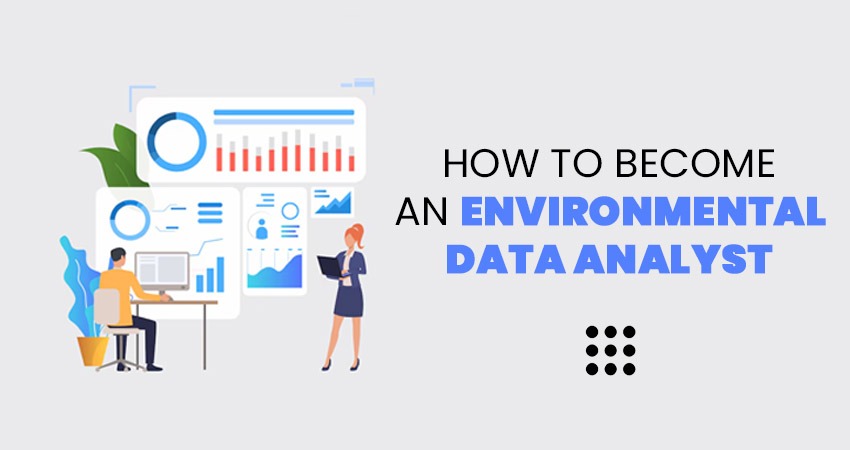User Ideas / Prospects
 An Environmental Data Analyst
An Environmental Data Analyst
Environmental challenges are more pressing than ever. As climate change, pollution, and resource depletion increase, so does the need for specialists who can interpret and analyse environmental data. If you are looking for a career offering both a passion for the environment combined with data, the role of an environmental data analyst is for you.
What Does the Environmental Data Analyst Do?An environmental data analyst collects and processes environmental data. Their focus is on data about air quality, water resources, climate trends, and ecosystem health. They provide the sound data that allow governments, businesses, and organisations to make informed decisions to save the planet.
Phase 1: Obtain The Necessary EducationIt all starts with a solid educational background. A bachelor’s degree in environmental science, data science, geography, or a related field is required. Some professionals study environmental statistics, computer science, or engineering, too.
A master’s degree in environmental data science or a master’s in geographic information systems (GIS) would serve to further your career prospects. It gives you an advantage to take up specialised roles.
Step 2: Sharpen the Necessary SkillsAn environmental data analyst requires a combination of technical and analytical abilities. Here are some key ones:
● Data Analysis & Statistics
Data may be essential. Learn how to apply statistical techniques and software (R, Python, and MATLAB) to environmental datasets.
● You are a learner in GIS 101.
Geospatial analysis software such as ArcGIS and QGIS allows us to visualize environmental changes over time. GIS is also a widely used technology nowadays.
● Programming & Automation
Working with large datasets requires Python and SQL expertise. Data collection automation saves time and is more efficient.
● Environmental Science Background
Educating ourselves about ecosystems, pollution, and climate science leads to more accurate data interpretation.
● Communication & Reporting
Just having data is futile if not displayed in a good manner. Understand how to present your findings through reports, dashboards, and visual presentations.
Step 3: Get Practical ExperienceEmployers most definitely prefer profiles with real-world experience. Here’s how to get it:
● Internships – Gain experience with research laboratories, environmental agencies, or private companies.
● Freelancing & Projects — Join some online platforms and choose smaller projects on data analysis.
● Volunteer Work– Many NGOs and conservation groups need help in data analysis.
● Personal projects – Work with publicly available datasets to improve your skills.
Engineer Heaven is a community which provides every kind of helpful content for the students and professionals to learn practically through the live projects in the industry.
Step 4: Building a Good PortfolioThe portfolio shows your skills. Include:
● Data visualization projects
● Environmental reports
● GIS mapping examples
● Statistical case studies for analysis
It really makes an impact when you are applying for a job.
Step 5: Follow The Talks and Forest WorksIt is the era of environmental data. Stay ahead by:
● To stay up to date, attend industry conferences and webinars.
● Connecting to LinkedIn groups and professional organisations
● Networking with Engineering professionals on Engineer's Heaven.
Step 6: Find the Right JobStart applying for jobs like in these industries:
● Climate research organizations climate research climate change
● Energy and utility companies
● Environmental consulting companies
● Nonprofit organizations
Conclusion
So, if you are to take a journey toward this career as an environmental data analyst, it would be a journey well worth taking. Linked in with the right education, skills, and experience to make real change in the planet. Check out Engineer’s Heaven for expert tips, helpful insights, and everything you need to get started.
(Disclaimer: This statistics could be different in different part of World and Different timeline. this statistics has been generated based on data available till 2025 or relavant time span.)
